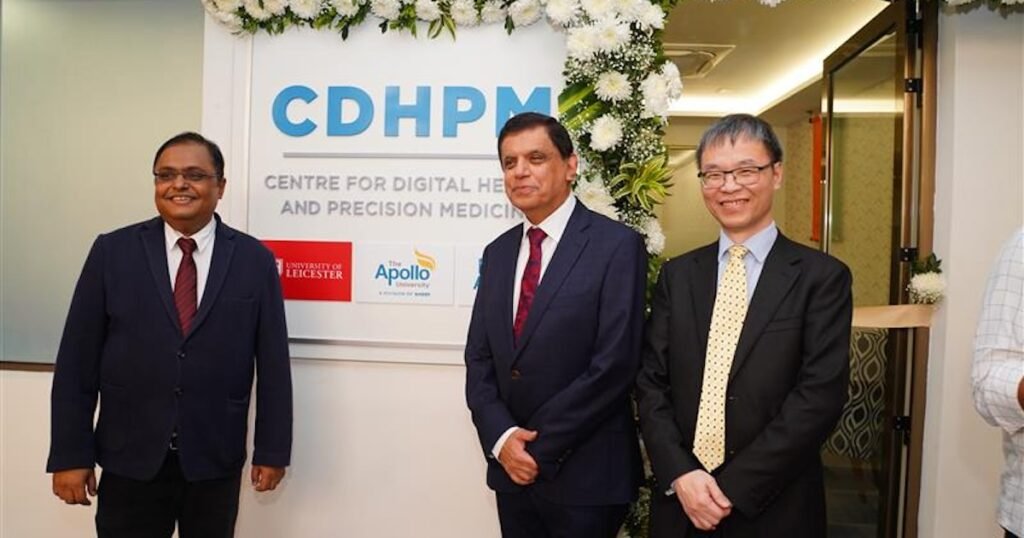Apollo Hospitals launches a study hub for perfection medicine and modern healthPollo Hospitals in India and the University of Leicester in England have partnered to establish a research facility for perfection treatments and medication. The center, which has two centers at The Apollo University campus in Chittoor and Glenfield Hospital in Leicester, will create novel, personalized solutions by applying cutting-edge scientific techniques, focusing on cardiovascular diseases, chronic and emergency healthcare, and multi-morbidity. ” With the]Centre for Digital Health and Precision Medicine], we aspire to alter medical supply by bettering disease forecast, prevention, diagnosis, and management for acute and chronic circumstances…” commented Dr Prathap C Reddy, founding president of Apollo Hospitals. A Master’s program in mathematical health data technology, along with a program in mental health care, will also be offered as part of this partnership between the two companies. In addition, Apollo Hospitals has recently partnered with the private Indonesian Mayapada Healthcare Group. Based on their memorandum of understanding, the hospitals will collaborate in improving patient care and healthcare accessibility using advanced technologies, such as teleradiology, e-ICU, and AI. The partnership also involves training programmes, with Apollo Hospitals deploying up to 1, 000 specialists to Mayapada’s health facilities. They will develop programmes in specialised areas, including oncology, cardiology, neurology, and transplant surgery. Additionally, Apollo Hospitals will train Mayapada in management skills when operating the upcoming hospital in Batam. Singapore General Hospital creates a mobile app that enables at-home jaundice testing in newborn children. The app, which is called BiliSG, was created in collaboration with Synapxe and SingHealth Polyclinics. The app uses artificial intelligence to determine a baby’s skin’s bilirubin levels or level of yellowness. Photos of their forehead, chest, and abdomen with a specially designed colour-calibration sticker are captured via smartphone camera. Existing mobile apps are limited by their repertoire of skin tones and single point of reference, but this is not new. Alvin Ngeow, SGH professor and principal investigator of BiliSG,” This prompted us to develop our own app.” The research team is now conducting a test of the app’s camera and operating system on a variety of smartphones. Additionally, they intend to conduct a pilot study to test the app’s potential use in clinical settings. Vietnamese health workers ‘ access to mobile educational resources has been partnered with the network of healthcare professionals Docquity in Vietnam. On Docquity’s application, a dedicated education channel for HCPs in Vietnam will go live for three years. More than 3, 000 Vietnamese workers are expected to be reached by the HCDC in various healthcare fields. The channel aims to give them up-to-date information on advances in disease prevention and professional guidelines. Health records are available on the Samsung Health app for mobile devices in India. The Health Records feature, according to a media release, enables users to create and access their Ayushman Bharat Health Account. Samsung and Eka Care collaborated to integrate their mobile applications with the Indian government’s digital health records ecosystem. Additionally, Samsung’s app includes a QR code scanner that users can use to receive a virtual queue token at ABDM-compliant hospitals and clinics during OPD visits.
More papers are being sent out for the Apollo Hospitals digital health research center.

